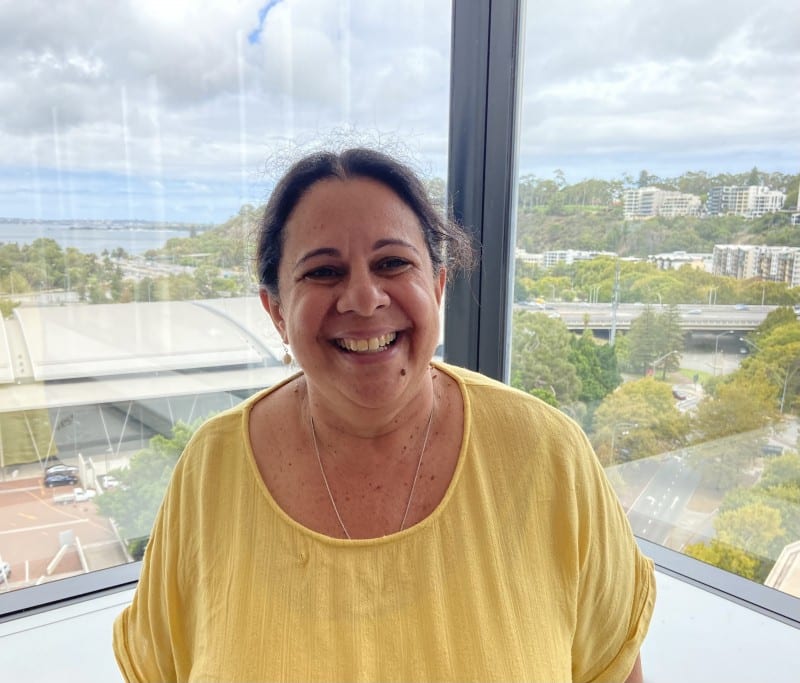Melanie Robinson joined our National Scientific Advisory Group in 2020, bringing with her decades of experience as a registered nurse specialising in maternal and child health, with a particular interest in working with Indigenous families. She shares with us her connection to the Red Nose cause and why she’s passionate about supporting babies, children and their families.
I first came to Red Nose in an advisory capacity when the education team worked on a project (improve safe sleeping) with Indigenous communities. Since last year I’ve been involved in NSAG to help Red Nose reach Indigenous families with crucial safe sleeping advice in a culturally appropriate way.
I’m enjoying getting together with other experts around the country to promote Red Nose’s messages, hear about what is happening in the space in other areas, and get ideas about what we can do in our service here in WA.
I’m the Director, First Nation Health at the Child and Adolescent Health Service in WA. Over the years, I have heard about some deaths of First Nation babies that have occurred whilst the babies and parents were co-sleeping. Those experiences are what makes me passionate about finding safe solutions that take into account First Nation cultural ways.
Co-sleeping is not encouraged, but I know that’s what many First Nation families do, no matter what we say, so we have to find a way to make it safer for them. I’ve been a big champion of Pepi-Pods. It’s a brilliant concept that came from New Zealand and the Maori mob over there.
There are currently trials in QLD & SA about the use of Pepi-Pods, but I think there should be a national approach. They’re very cost-effective and can be cleaned and reused over and over.
I think there are many opportunities for Red Nose to have input into programs like these to make a difference in the outcomes of these babies and children.
As a nurse in the paediatric space, conception to school-age is a critical period of development, especially for First Nation kids. I think there is a lot more we can do to prevent long-term chronic disease, improve safe parenting practices, and address the impact of trauma, which is often passed down through the generations.
I want to see services that help build First Nation families’ capacities to parent their children. We have some wonderful families, but some of them haven’t had that example to learn from because they weren’t parented well themselves.
The service I work in is in Perth. The people that come to us travel from all over the state. With the current system, due to COVID, they can only bring one carer, so they’re leaving their families, communities and support structures behind – it’s tough for them. I put a lot of effort into making sure the environment is friendly when families come in and make them feel welcome.
I grew up in a remote community too. Back then, it was like a cattle station, but we had many traditional owners who lived there with us. I went on to boarding school and later did nursing.
I wanted to be a nurse from the time I was seven years old. My aunt was a nurse and told us stories about the kids and her work to help them. And as a kid on a remote station, I also saw many preventable accidents. Nursing always felt to me to be a way to help people.
I do a lot of research in the First Nation maternal and child health space, and already from what I’ve learned at Red Nose, I’ve been able to help the team that run our community health education sessions to embed SIDS prevention approaches into that. I’ve learned a lot of skills and expertise from others. That’s been really helpful. Just sharing ideas and working together.
For more information on how we are working with First Nation communities visit here.
To help ensure that every parent has acces to Safe Sleep advice when they need it most you can donate here.
Did you find this helpful?
Good job! Please give your positive feedback
How could we improve this post? Please Help us.
